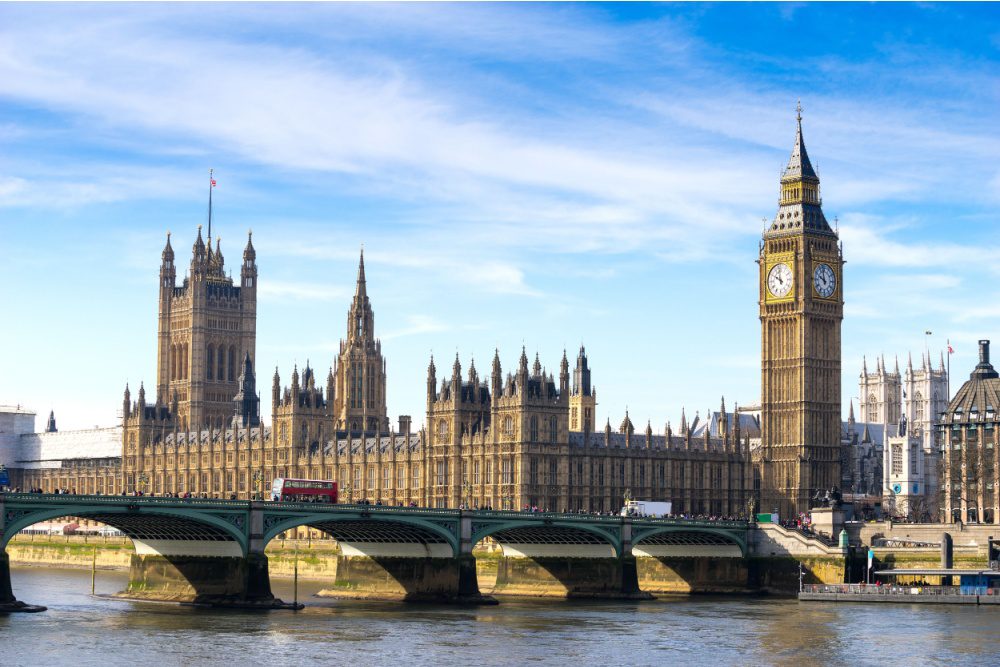Did you know that the National Gallery turns 200 this year?
Originally founded in 1824, the museum in Trafalgar Square, London houses an impressive collection of over 2,300 paintings. Displaying art from the mid-13th century to 1900, it’s home to many famous paintings that people travel across the world to see.
Whether you’re a London local or a tourist excited to see the best culture our capital city has to offer, here are 10 masterpieces that you must see at the National Gallery.
1. ‘Virgin of the Rocks’ by Leonardo da Vinci
Created around the 1400s, the beautiful oil painting depicts the Virgin Mary with Saint John the Baptist, Christ’s cousin, and an angel.
Da Vinci originally produced the painting as part of a large, elaborate altarpiece made for the church of San Francisco Grande in Milan. The sculpted parts of the altarpiece are now lost, but two versions of this painting remain, one in London and the other in the Louvre in Paris.
2. ‘Samson and Delilah’ by Peter Paul Rubens
Rubens’ famous painting portrays a tragic Bible story from the Old Testament. Delilah has been bribed to discover the secret of her lover Samson’s supernatural strength. The painting shows the moment after he reveals the source of his power, where Delilah signals her accomplice to cut his hair and leave him powerless.
3. ‘Bathers at Asnières’ by Georges Seurat
This huge painting was Seurat’s first major composition and depicts several men and boys relaxing on the banks of the Seine at Asnières and Courbevoie, an industrial suburb north-west of central Paris.
He painted it before he turned 25 in the hopes it would be displayed during the official Salon in the spring of 1884, but it was rejected.
4. ‘Sunflowers’ by Vincent van Gogh
Arguably one of van Gogh’s most famous paintings, the ‘Sunflowers’ on display at the National Gallery is one of five versions available around the world, which he painted to decorate his house in Arles in preparation for his friend and fellow artist, Paul Gauguin, to visit.
Van Gogh once declared that “the sunflower is mine,” and it certainly proved true, with ‘Sunflowers’ among his most iconic and best-loved works.
5. ‘The Ambassadors’ by Hans Holbein the Younger
‘The Ambassadors’ depicts Jean de Dinteville and his close friend, Georges de Selve, Bishop of Lavaur.
Holbein painted it at a time of religious upheaval in Europe after Henry VIII broke apart from the Roman Catholic Church due to the pope refusing to annul his marriage to Catherine of Aragon, which is why the painting is packed with clever religious references.
6. ‘The Arnolfini Portrait’ by Jan van Eyck
One of the most famous and intriguing paintings in the world, ‘The Arnolfini Portrait’ depicts a richly dressed man and woman – likely Giovanni di Nicolao di Arnolfini, an Italian merchant working in Bruges, and his wife – standing in a private room.
But on closer inspection, you can start to notice inconsistencies. Although it looks like van Eyck painted a real room exactly as he saw it, every object has been carefully chosen to proclaim the couple’s wealth and social status without risking criticism for mocking the aristocracy.
7. ‘Bathers at La Grenouillère’ by Claude Monet
During the summer of 1869, Monet and Renoir painted together at La Grenouillère, which is close to Paris. Monet made several oil sketches at the resort, including this picture, which were painted quickly without any attempt to clean them up.
The directness and immediacy of the paintings which couldn’t be achieved in an art studio is believed to have been an important step forward for the impressionism movement.
8. ‘Bacchus and Ariadne’ by Titian
‘Bacchus and Ariadne’ is one of the most famous paintings on display in the National Gallery. It illustrates a classical story told by the Roman poets Ovid and Catullus.
The Cretan princess Ariadne has been abandoned on the Greek island of Naxos by Theseus, whose ship sails away in the distance. Bacchus, god of wine, falls in love with her at first sight and throws her crown into the air, immortalising her as the constellation Corona Borealis, represented by the stars above her head.
9. ‘Surprised!’ by Henri Rousseau
The first of around 20 jungle-themed paintings Rousseau produced, ‘Surprised!’ depicts a tiger lurking in foliage, either ready to pounce or startled by the lightning above. However, on closer inspection, you may recognise the plants in the painting.
Rousseau never left France, so his jungle is made up of domestic house plants and tropical varieties he saw at the Botanical Garden in Paris. But despite the many criticisms Rousseau faced, he is still credited as the pioneer of “naïve art”.
10. ‘An Experiment on a Bird in the Air Pump’ by Joseph Wright of Derby
An audience gathers around a lecturer to watch an experiment: a white cockatoo is trapped in a glass container from which the air is being pumped to create a vacuum.
As the largest and most ambitious painting in the “candlelight” series that Wright created during the 1760s, his focus was on the viewer’s different reactions, from the girl unable to watch to the lovers gazing into each other’s eyes.



